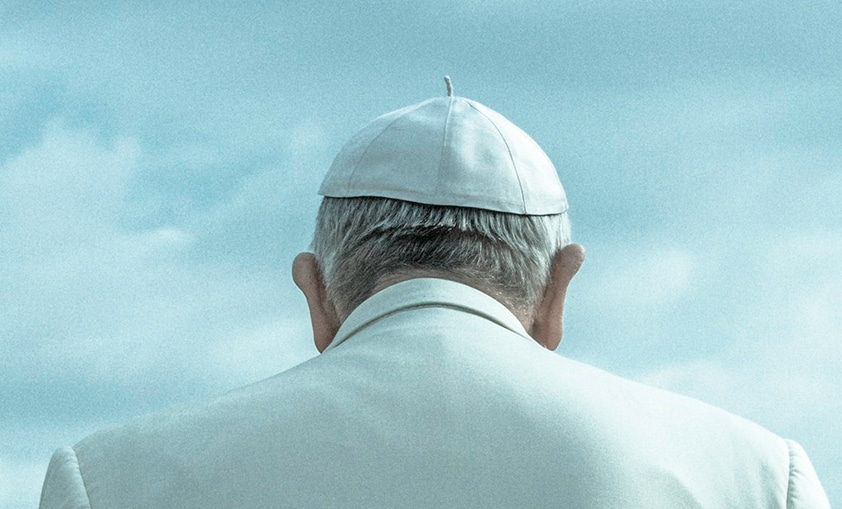There are a lot of reasons to love Pope John Paul II. As one of the longest-serving Popes in modern times and definitely one of the most prolific writers of the Papacy, this great saint can actually seem a little intimidating at first glance. I mean, let’s face it —the man was amazing.
But a look into his early life and a peek at the devotions he held dear will show you that this is a guy very much like us, and someone we would do well to call upon.
Early Life of Suffering and Loneliness

Before he was Pope John Paul II, he was Karol Wojtyla, born in a small Polish town in the year 1920. He was the youngest of three and his older sister Olga died before he was born.
When he was eight years old his mother died, leaving only young Karol, his father, and his older brother Edmund. He was very close with Edmund, who was thirteen years older than him. But Edmund then died of scarlet fever when Karol was twelve.
Karol enjoyed sports but was also very academically inclined. He began attending a university in 1938, where he studied philosophy and learned twelve different languages, (just one snippet of his intellectual abilities that I’d be tempted to consider intimidating).
But then came the Nazi occupation of Poland, which closed the university and forced all able-bodied men to work. So Karol had to set his studies aside for the manual labor of stone-cutting in a quarry.
It was around this time that his father died of a heart attack. Karol now had no immediate family members left, by age twenty. But he did not waste time wallowing in loneliness or sorrow. Rather, he decided to commit himself to the priesthood, even though the Nazis were actively killing any priests who got in their way, and the only seminaries were underground.
So underground he went. But he already had a bit of experience with this type of secret activity, as he had himself founded an underground theater company in order to write and perform stories that expressed the depth of the tragedy and oppression he had seen in his life.
An Accessible Young Priest

Once the war was over, Karol was ordained to the priesthood in 1946. One of his first posts was at a church very near Jagiellonian University where he had studied, and as a priest there he spent a great amount of time ministering to young people.
He also began teaching at Jagiellonian University as well as at the Catholic University of Lublin. And it was during this time that a group of young people began to hang out with him. They would get together for activities like hiking, skiing, or kayaking, and they would have a good discussion about philosophy and life matters.
It was actually from this experience and their discussions that he gleaned a lot of his insight into human nature and God’s design for sexuality, which he would later write and teach on extensively in his book Love and Responsibility and his series of talks Theology of the Body.
But all of this activity was technically against the law. Communism was the ruling power at this point, so priests weren’t allowed to travel and get together with students. In yet another clandestine practice, he pretended to be the young people’s uncle, which was really rather fitting when you consider the familial relationship he had with them.
I rather like to think that even now in Heaven, the man is waiting for all of us to ask him to help us out in a similarly uncle-ish way.
The Role of Mercy

For a lot of us, an early life such as this man led would invite bitterness. But Karol grew up with a devotion to the message of Divine Mercy proclaimed by his fellow Pole Sister Faustina Kowalska (whom he would later canonize).
During his papacy, he wrote an encyclical on God’s mercy, Dives in Misericordia, and even established a feast day in celebration of Divine Mercy. But perhaps most remarkable is the fact that he acted as a living example of God’s mercy by forgiving the man who attempted to assassinate him in 1981.
So as you and I struggle with forgiving others for past hurts, and even with forgiving ourselves for past mistakes, let us take John Paul II as an example and special patron, diving deep into God’s mercy toward us and reciprocating that mercy toward others.
Never Settling for Mediocrity

With an early life as full of hardship and suffering as this man had, no one would have blamed him for seeking a quiet life and hiding away from the world. But he could not settle for less than what God was calling him to.
Instead, the man went on to become a bishop, a cardinal, and finally pope in 1978, where his motto was “Totus Tuus,” which means, “totally yours.” He never did anything halfway.
As Pope, he canonized over 480 people and beatified more than 1300. This was a staggering number, compared to previous Popes. But he did this because he firmly believed in the universal call to holiness, that sainthood was possible for anyone in any walk of life, and that we needed examples of holy men and women who gave their all to God.
There are obviously a plethora of things this great man is remembered and celebrated for, but to me what has always seemed most significant was his urging to go all in, to forget fear, place your trust in God, and strive to be the best possible: “Do not be afraid. Do not be satisfied with mediocrity. Put out into the deep and let your nets down for a catch.” (Inaugural Homily).



